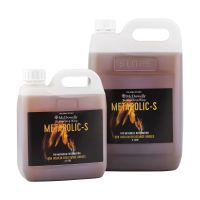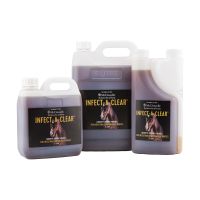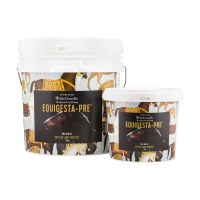Inflammation and oedema (fluid retention) are complex symptoms with many possible causes. It's essential to look beyond the surface to address the root of these issues, supporting the body’s natural healing processes with herbs, nutrition, and lifestyle practices.
Understanding Oedema and Inflammation
We know that increased permeability of the cell wall and poor lymphatic drainage often result in oedema. Common contributing factors include toxin overload, immune responses, bacterial infections, vitamin C deficiency, trauma, and organ stress - especially affecting the liver and kidneys (Biognosis, Baroque Horse, Vol. 27).
However, when these causes are ruled out, a sluggish elimination system - through the skin, lungs, bowels, liver, and kidneys - may be at the core. Slow detoxification allows waste products, mycotoxins, and parasitic microorganisms to build up in the body, particularly in the gastrointestinal tract. This places a heavy burden on elimination organs and may lead to:
Allergic responses
- Skin conditions like lumps and itching
- Laminitis
- Reduced immune function
- Chronic inflammation
- Gut irritation and ulceration
- Behavioural changes and anxiety
The First Step: Detoxification
Detoxification is an essential first step in restoring wellness. But it must be tailored carefully to suit the animal (or person) and their current state of health. Here are some of the most effective natural detox methods:
1. Fasting
Fasting is not suitable for all species. It may be beneficial for humans and dogs in cases of digestive upset, liver or pancreatic strain, or gastrointestinal symptoms such as diarrhoea and vomiting. During fasting, hydration is critical. Herbal teas like chamomile, rosehip, ginger, and peppermint can provide gentle support.
Important: Horses and cats should not fast. Horses, in particular, require constant access to roughage to maintain gut health and prevent dangerous metabolic shifts.
2. Clean Diet
For humans and animals alike, a simple, whole-food diet helps lighten the body’s toxic load. Reducing or eliminating wheat, sugar, caffeine, and alcohol can improve gut function and support detoxification.
For horses, this can be more difficult. Many commercial feeds contain grains, lupins, or chemical residues. Whenever possible, choose clean, high-fibre, low-GI forages—free of herbicides and synthetic additives. Incorporating herbs into the diet is ideal for monogastric herbivores like horses, which evolved grazing on a variety of natural grasses and herbs.
3. Colon Cleansing and Gut Support
In humans and dogs, colon cleansing is valuable for those with sluggish digestion, constipation, or inflammatory bowel conditions. Cathartic herbs, when paired with soothing agents like slippery elm and chamomile, help to reduce mucus buildup, repair intestinal lining, and restore balance.
In horses, this step is essential. Research suggests that up to 80% of domestic horses experience gastric ulceration. Slippery elm provides both a prebiotic benefit and a soothing effect on the gastrointestinal tract. Chamomile encourages a shift from the sympathetic (fight/flight) to the parasympathetic (rest/digest) nervous system, allowing proper peristalsis and healing.
Herbal antimicrobials like wormwood and garlic help deter parasites, while raw apple cider vinegar (a base in many of our herbal formulas) supports pH balance and microbial diversity.
4. Organ Support
Elimination organs - especially the liver and kidneys - must be supported during detox. Herbs like dandelion leaf, rosehips, and St. Mary’s thistle are time-honoured for their ability to stimulate bile flow, strengthen liver function, and promote kidney filtration.
Lung function is also critical. Efficient oxygen exchange supports metabolic waste elimination. Elecampane, nettle, rue, and hawthorn can strengthen both respiratory and cardiovascular systems, assisting detox and overall vitality.
5. Blood Cleansing and Lymphatic Support
"Blood cleansing" is an ancient term for supporting the immune system’s natural ability to filter waste and fight infections. Herbs such as echinacea, garlic, horsetail, red clover, and burdock have traditionally been used to stimulate the immune system, improve circulation, and encourage the clearance of cellular waste.
Specific lymphatic herbs—like violet leaf and fenugreek—further aid in detox by helping drain stagnation and reduce swelling.
Our experience suggests that these herbs also communicate with the body's microbiome—particularly the cecum in horses or the appendix in humans—to initiate a healing cascade throughout the body.
McDowells Herbal Support
We offer custom-blended equine herbal tonics designed to:
- Reduce oedema and inflammation
- Support liver and kidney function
- Restore gut balance
- Clear infections and skin issues
- Enhance immune resilience
These formulations are based on decades of practice and evidence-backed knowledge. Many clients report seeing rapid improvement—swelling subsides, coat health returns, and behaviour improves.
Every animal is different. If your horse, dog, or family member is experiencing inflammation, fluid retention, or recurring health issues, our team is here to help.
We offer free consultations to help tailor a natural, holistic plan that suits your unique needs.




